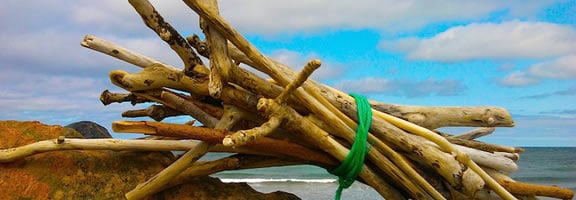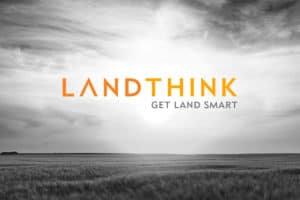If you took your family camping, one thing you’d need is a bundle of sticks to build a campfire. If you wanted to build a wealth campfire, one that would keep your family warm and comfortable for a lifetime, you could also do it with a “bundle of sticks”.
First, consider a word or two about investing in gold, silver, stocks, etc. You can buy them, sell them, and hold them – primarily for the eventual purpose of selling them at a profit.
Now consider real estate and, more specifically – land. The “fee simple” ownership of land is the highest and best level of ownership in real estate, and consists of a “bundle of rights” – more easily visualized as a “bundle of sticks”. Each of those sticks represents one of the rights you are “granted” under fee simple ownership.
The prudent use of each of those “sticks” is your ticket to the greatest wealth – the long-term American wealth envied by people around the world. So what “rights” or “sticks” does fee simple land ownership provide?
First, the right to “occupy and use” the property. You can live on it, play on it, camp on it, or hike on it. You can improve it, landscape it, build a pond on it, stock the pond with fish, or install a driveway. It is yours, exclusively, to occupy and use.
The next right? You can “build” on it. Build a home, a shed, a barn, or an office. You can “grant easements” to a neighboring land owner. You can “mortgage” or obtain loans on it – in any amount, and on any terms you can negotiate.
You can “mine, drill, or farm” it. Dig for gold & silver. Plant row crops, potatoes, or timber. Eat your daily meals from a family vegetable garden.
You can “restrict use” of the property, and place “covenants” on land. These restrictions might only allow farming, or may restrict against development of the land. You can “exclude others” with “NO TRESPASSING” signs. You have the right to “sell” the property at any time and to anyone you choose. No one can make you sell it since you also have the right to “refuse to sell”.
You can “give away or abandon” it. By deeding it to others at no cost, you may benefit from a tax break, while assisting a group who can benefit from its ownership. You can “abandon” it, an act which will cause it to eventually become owned by the State through “escheat”. You can “rent” it to another for farming, or “lease” it to a hunter for the season.
You can “license” it for use by others, perhaps for research. Finally, you can “devise” it to family, friends, or charities.
No other investment provides such a wide array of rights, all of which factor into long-term wealth. Collectively, the income and others benefits build financial independence.
Better yet, many of the rights can be enjoyed at the same time throughout the period of ownership. Consider the purchase of a 500-acre parcel of land.
On one corner, perhaps near a stream, you can build a “forever” home for your family. You can obtain a mortgage loan on the home. On the far 50 acres, you may grant a mining/drilling lease that provides a steady stream of income.
You can set aside room for a family garden or truck farm, or manage timber for harvest. You can license hunters for the forest land, and exclude others by way of locked access gates.
You can place deed restrictions or covenants limiting the use of the land, or grant a power line easement to bring utilities into the property.
You can give it away to your favorite charity, grant a conservation easement, or devise it your children. You can sell it, or refuse to sell it.
Most of these rights or sticks can be implemented and enjoyed at the same time – either individually or collectively. All the while, your land is providing income and rising in value due to improvements, appreciation, rents, leases, mineral rights, timber harvesting, plus benefits from the other rights.
Wealth has been defined as “All goods and resources having value in terms of exchange or use.” Also: ”all things that have a monetary or exchange value”. Adam Smith, in The Wealth of Nations, described wealth as “the annual produce of the land and labour of the society”. Again, the sum total of all rights enjoyed from the ownership of land falls under the term “wealth”.
Land, and the “fee simple” ownership of land, is clearly one of the straightest, most level, paths to long-term wealth available to each of us. As Americans, we are blessed to enjoy a system under which we have such rights.
This content may not be used or reproduced in any manner whatsoever, in part or in whole, without written permission of LANDTHINK. Use of this content without permission is a violation of federal copyright law. The articles, posts, comments, opinions and information provided by LANDTHINK are for informational and research purposes only and DOES NOT substitute or coincide with the advice of an attorney, accountant, real estate broker or any other licensed real estate professional. LANDTHINK strongly advises visitors and readers to seek their own professional guidance and advice related to buying, investing in or selling real estate.








Add Comment